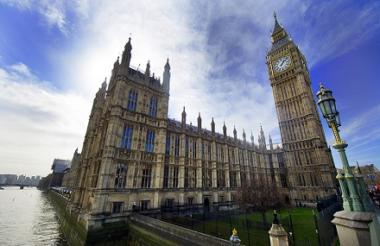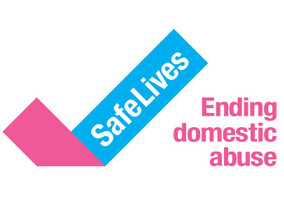It is “unsafe” and “discriminatory” to make domestic abuse survivors give evidence to Parliament in person, charities have said.
A group of women’s and domestic abuse organisations have written a letter to Jacob Rees-Mogg, leader of the House of Commons, asking for witnesses to be able to give evidence remotely.
Next week a parliamentary committee will hear from domestic abuse survivors next week as part of its work scrutinising the Domestic Abuse Bill.
Parliament has been operating in a “hybrid” form for the past month, with many MPs and peers participating via videoconference, but goes back to normal when it returns after a two-week break on 2 June.
'Unnecessary risk'
Eighteen organisations have signed the letter to Rees-Mogg, arguing that holding the hearing in person will result in witnesses and staff being put unnecessarily at risk.
This is because in many cases they will have to make non-essential travel on public transport and arrange childcare. One witness has disability and accessibility requirements and would need someone to break social distancing guidelines to support them in navigating Westminster, the letter says.
Survivors and organisations from Wales would not be able to attend due to Wales’ stricter travel restrictions.
‘Inaccessible, unsafe and clearly discriminatory’
The letter reads: “The requirement for survivors to attend in person makes the process inaccessible, unsafe and is clearly discriminatory. It will put the health of witnesses, particularly those from BME communities, at risk. It would also mean that the survivors and our organisations are being pushed to breach government guidance and our own risk assessments for what is currently safe practice.”
It asks that witnesses are allowed to give evidence remotely instead, given that “effective mechanisms for witnesses to give evidence to select committees have already been established”.
Nicki Norman, acting co-chief executive of Women’s Aid, said: “We welcome the Public Bill Committee’s decision to hear the expert evidence of domestic abuse survivors as they scrutinise the landmark Domestic Abuse Bill.
“However, it is clearly wrong to require them to give evidence in person. This requirement is unsafe for survivors, especially for women from BME communities and those with disabilities. It will put survivors and staff supporting them at risk and force them to breach current government guidance. The government must urgently reconsider this requirement.
“We also urge the bill committee to make time to hear from a wide range of organisations working to end domestic abuse, including organisations supporting marginalised survivors whose voices are often unheard.”
Organisations signing the letter include Amnesty International UK, Women’s Aid Federation of England, Refuge and Welsh Women’s Aid among others.
A draft of the Domestic Abuse Bill was originally published in January 2019. In 2020, the bill was debated in Parliament on 3 March and 28 April. The Public Bill Committee will now scrutinise it and report back on 25 June.
The bill aims to “raise awareness” on domestic abuse, “improve the effectiveness of the justice system in providing protection for victims” and “strengthen support”. It currently includes the introduction of legal duty on local authorities to provide refuge services, among other things.
When it went back to parliament in March, Women’s Aid said that while the legislation is “urgently needed”, some key points such as funding for refuges and support for migrant women experiencing domestic abuse still need to be addressed.












